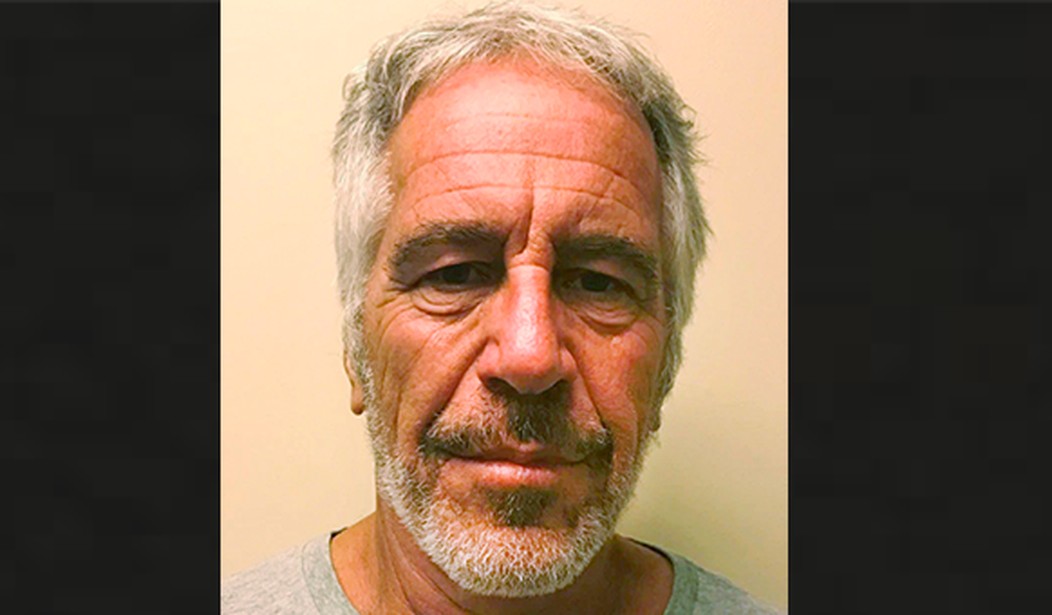Following a years-long investigation into the death of Jeffrey Epstein while in custody at the Metropolitan Correctional Center (MCC) in New York City, the Justice Department's Office of Inspector General released a scathing report on Tuesday that pointed to "significant misconduct" by Federal Bureau of Prisons (BOP) staff that led to Epstein's suicide in 2019 and set off a flurry of conspiracy theories while depriving Epstein's victims of the ability to seek justice in court.
In its 128-page report, the OIG lays out the facts leading up to Epstein's death and identifies "numerous serious failures by MCC New York staff, including multiple violations of MCC New York and BOP policies and procedures."
Among them, that "MCC New York staff failed on August 9 to carry out the Psychology Department’s directive that Epstein be assigned a cellmate, and that an MCC New York supervisor allowed Epstein to make an unmonitored telephone call the evening before his death." In addition, "staff failed to undertake required measures designed to make sure that Epstein and other SHU inmates were accounted for and safe, such as conducting inmate counts and 30-minute rounds, searching inmate cells, and ensuring adequate supervision of the SHU and the functionality of the video camera surveillance system."
In addition to breaches of standard policy, investigators "found that several staff falsified BOP records relating to inmate counts and rounds and lacked candor during their OIG interviews." But, as the OIG report reminds, two employees were charged for criminally falsifying BOP records but later saw the charges dismissed as a condition of deferred prosecution agreements while the U.S. Attorney's Office for the Southern District of New York decided not to prosecute other employees found to have created false documentation.
More from the OIG report on the facts it uncovered:
Recommended
The combination of these and other failures led to Epstein being unmonitored and alone in his cell, which contained an excessive amount of bed linens, from approximately 10:40 p.m. on August 9 until he was discovered hanged in his locked cell the following day While the OIG determined MCC New York staff engaged in significant misconduct, we did not uncover evidence contradicting the FBI’s determination regarding the absence of criminality in connection with how Epstein died. We did not find, for example, evidence that anyone was present in the SHU area where Epstein was housed during the relevant timeframe other than the inmates who were locked in their assigned cells. The SHU housing unit was securely separated from the general inmate population and inmates were kept locked in their cells for approximately 23 hours a day.
[...]
SHU staff told the OIG that at approximately 8 p.m. on August 9, all SHU inmates, including Epstein, were locked in their cells for the evening and we found no evidence to the contrary. The prison’s recorded video did not identify any staff or other individuals approaching Epstein’s SHU tier from the SHU common area between approximately 10:40 p.m. on August 9 and about 6:30 a.m. on August 10. Additionally, the OIG did not observe on the recorded video that Noel and Thomas, who were seated at the desk at the SHU Officers’ Station immediately outside the area where Epstein was housed, at any time during the time period rose from their seats or approached the cell block. We additionally found that Thomas’s and Noel’s reaction on the morning of August 10 upon finding Epstein hanging in his cell, as described to us by Thomas, Noel, the responding Lieutenant, and inmates, was consistent with their being unaware of any potential harm to Epstein prior to Thomas entering Epstein’s cell at about 6:30 a.m. on August 10.
None of the MCC New York staff members we interviewed were aware of any information suggesting Epstein’s cause of death was something other than suicide. Additionally, none of the inmates we interviewed had any credible information suggesting Epstein’s cause of death was something other than suicide. Further, the SHU staff and three interviewed inmates with a direct line of sight to Epstein’s cell door on the night of his death stated that no one entered or exited Epstein’s cell after the SHU staff returned Epstein to his cell on August 9.
[...]
We noted as well that Epstein had previously been placed on suicide watch and psychological observation due to the events of July 23, 2019; that numerous nooses made from the excess prison sheets were found in his cell on the morning of August 10; that no weapons were recovered from his cell after his death; and that he signed a new Last Will and Testament on August 8, 2 days before he died. We found that the staff’s failure to assign Epstein a cellmate on August 9; failure to conduct rounds and counts that evening; and to allow him to have excess linens in his cell, left Epstein unmonitored and locked alone in his cell for hours, which provided him an opportunity to commit suicide.
Finally, the Medical Examiner who performed the autopsy detailed for the OIG why Epstein’s injuries were more consistent with, and indicative of, a suicide by hanging rather than a homicide by strangulation. The Medical Examiner also cited the absence of debris under Epstein’s fingernails, marks on his hands, contusions to his knuckles, or bruises on his body evidencing a struggle, which would be expected if Epstein’s death had been a homicide by strangulation.
Unsurprisingly, the Epstein situation is "not the first time OIG has found significant job performance and management failures on the part of BOP personnel and widespread disregard of BOP policies that are designed to ensure that inmates are safe, secure, and in good health."
The OIG emphasized that the "combination of negligence, misconduct, and outright job performance failures documented in this report" at MCC New York "contributed to an environment in which arguably one of the BOP’s most notorious inmates was provided with the opportunity to take his own life, resulting in significant questions being asked about the circumstances of his death, how it could have been allowed to happen, and most importantly, depriving his numerous victims, many of whom were underage girls at the time of the alleged crimes, of their ability to seek justice through the criminal justice process."
OIG continued its reprimand by noting "that these failures have been recurring ones at the BOP does not excuse them and gives additional urgency to the need for DOJ and BOP leadership to address the chronic staffing, surveillance, safety and security, and related problems plaguing the BOP."
To that end, OIG recommended changes to address identified issues as well as a review of "the conduct and performance of the BOP personnel as described in this report" in order to "determine whether discipline or other administrative action with regard to each of them is appropriate."

























Join the conversation as a VIP Member